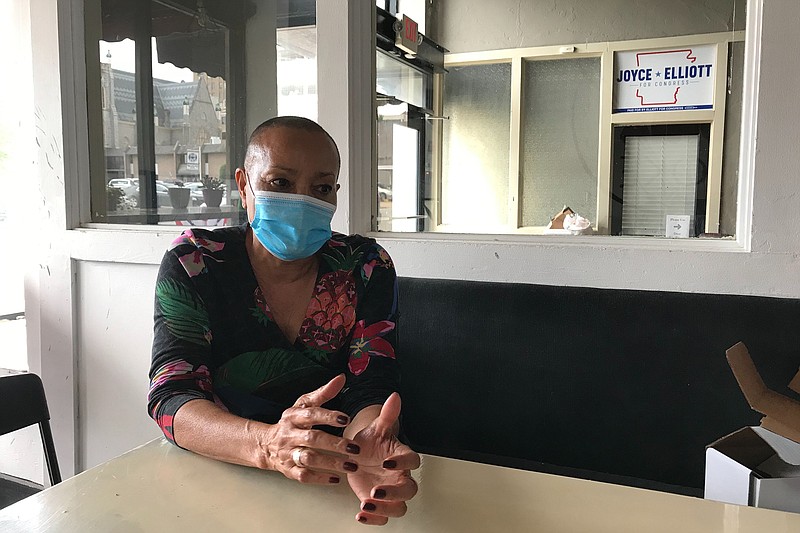LITTLE ROCK, Ark. (AP) — When she ran for an Arkansas congressional seat a decade ago, Joyce Elliott lost by 20 points as Republicans took over nearly every major office. So it would have been easy to write her off as she ran again in a state that’s only grown redder.
But the state senator has turned what was a longshot bid into one of the Democrats’ best chances to flip a seat in the South this year. She outraised the district’s Republican congressman, French Hill, in the second quarter, and three election forecasters have upgraded the race from likely to lean Republican.
Once under the radar, the race is now attracting outside money from both sides. The Democratic Congressional Campaign Committee and the Congressional Leadership Fund, a Republican super PAC, have each made six-figure TV ad buys over the past week in the district.
Elliott’s candidacy will test whether turnout of Black voters mobilized after widespread protests against police brutality and racial injustice, combined with resentment over President Donald Trump’s handling of the coronavirus response, will give Democrats a better chance in conservative parts of the country.
“It’s a much better race for her than 10 years ago when she ran,” said Jay Barth, emeritus professor of political science at Hendrix College and a member of the Democratic Party’s state committee. “She was a candidate way out of step with the times in 2010. She’s a candidate more in step with the times in 2020.”
If Elliott wins, she’d be the first Black member of Congress elected from Arkansas, and her victory would come on the heels of gains by other African Americans in the district. In Little Rock, long known for the 1957 fight over Central High School’s desegregation, the city’s voters elected an African American mayor for the first time two years ago. Surrounding Pulaski County elected its first Black sheriff and its first Black woman as clerk that same year.
Elliott, 69, is running partly on adding to that legacy. In campaign materials and appearances, she talks about being only the second person of color to graduate from her high school in the tiny town of Willisville.
Speaking from the bed of a truck at a “drive-in” rally in Conway — about 35 miles northwest of Little Rock — the day after Justice Ruth Bader Ginsburg died, Elliott compared the impact of Ginsburg’s death to Martin Luther King Jr.’s in 1968.
“That was a time that was seared in my soul, because he was everything for having some hope for the future for people who looked like me and many others,” Elliott said.
Elliott’s bid is at least the third time over the past decade that Democrats have called the seat winnable, in part because of urban Little Rock’s diversity and youth, despite a further lurch to the right in mostly rural Arkansas. Two years ago, the party’s nominee for the seat focused on his battle against cancer as he criticized Hill’s votes against the Affordable Care Act, and he eventually lost by six percentage points.
Unlike those past bids, Elliott isn’t trying to distance herself from national Democratic figures that Republicans have used as election year cudgels. She’s touted endorsements from Joe Biden and former President Barack Obama and has criticized Hill for voting for Trump’s tax cut plan.
She’s also focused on other parts of her background, including her experience as a teacher and her decision to donate a kidney to her sister. Elliott has served in the state Senate since 2009 and before that served three terms in the House.
She has been a key player on education issues and co-sponsor of a hate crimes bill backed by Republican Gov. Asa Hutchinson.
The 2nd District is 22% Black and divides over race are hard to escape six decades after Central High’s desegregation. Protesters in Little Rock demonstrating after the May p olice killing of George Floyd in Minneapolis have pointed out deaths that have hit closer to home, including that of a Black motorist who was shot by a white police officer in Little Rock last year.
“As I said to (demonstrators), we have to take it from the outside to the inside now,” Elliott said. “We have to take it inside of policymaker places in the cities and counties and at the state level.”
Hill has gone directly after Elliott, criticizing her for supporting legislation increasing cell phone fees to fund improvements to the 911 system, for opposing new abortion restrictions and for supporting the federal health overhaul.

